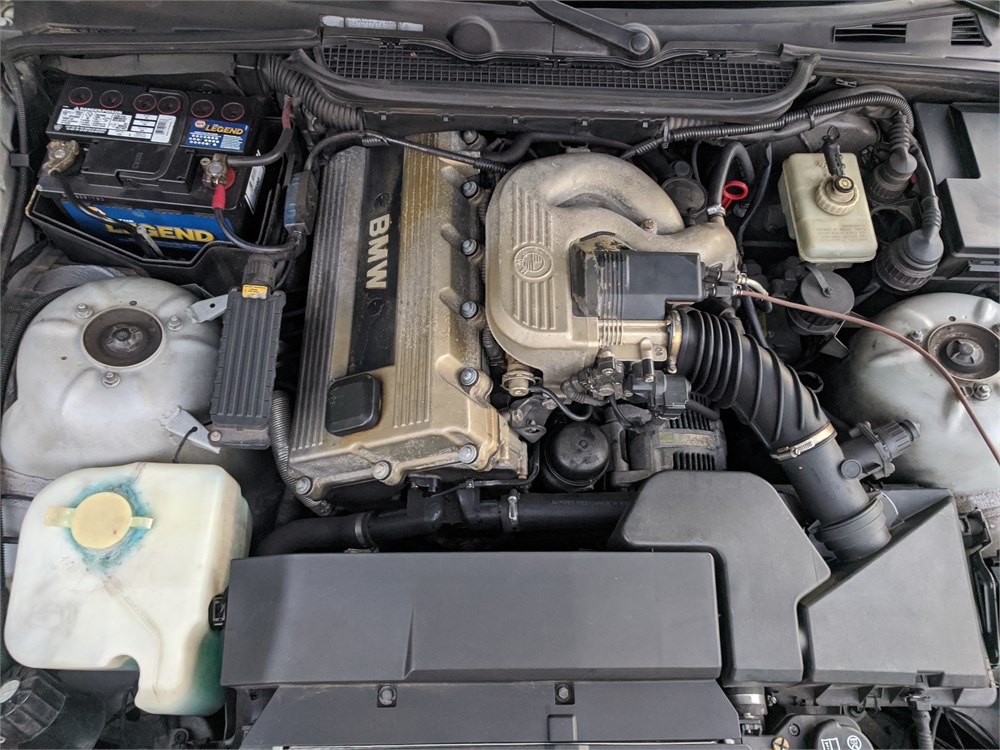Why the BMW 318ti Is a Top Option for Cars And Truck Enthusiasts
Why the BMW 318ti Is a Top Option for Cars And Truck Enthusiasts
Blog Article
Essential Factors To Consider for Choosing the very best Engine for Your Demands
In the world of choosing the ideal engine to meet your requirements, numerous essential aspects need meticulous consideration to make certain optimal performance and effectiveness. From the nuanced balance between power and performance to the often-overlooked facets of maintenance and solution demands, each facet plays a pivotal function in determining one of the most appropriate engine for your details requirements. As the complexity of engine innovations remains to advance, discerning one of the most suitable option requires a deep understanding of the interplay in between various factors to consider. By exploring the complex web of factors that underpin this decision-making procedure, a more clear course arises in the direction of choosing an engine that not only satisfies however exceeds your assumptions.
Power and Efficiency
When reviewing engines for ideal efficiency, it is vital to focus on both power output and effectiveness. Power result measures the capacity of an engine to produce power, which directly influences its performance. A high power output is necessary for requiring jobs such as sturdy applications or high-speed requirements. It ensures that the engine can handle the workload effectively and effectively. Power alone is not adequate; effectiveness plays a significant duty in determining the total efficiency of an engine. Performance refers to exactly how well the engine transforms fuel right into usable energy. A more effective engine will certainly deliver far better gas mileage, reduced exhausts, and decreased operating expense. Striking the best balance between power output and efficiency is vital to picking an engine that fulfills your certain needs. It is important to take into consideration aspects such as the planned use of the engine, environmental effect, and lasting expense effects when making this decision. By thoroughly reviewing both power and effectiveness, you can choose an engine that delivers optimum performance and satisfies your requirements effectively.
Gas Effectiveness and Economy
In the realm of engine selection, the factor to consider of fuel performance and economic situation holds critical value. Fuel performance describes the engine's capability to convert gas right into energy with very little waste, straight influencing operating prices and ecological sustainability. bmw 318ti. When choosing an engine, evaluating its fuel economy is essential to establish long-lasting financial savings and ecological impact. Engines with higher gas effectiveness not just minimize fuel costs however additionally reduce carbon discharges, adding to a greener procedure.
Compatibility and Application
Considering the gas performance and economy of an engine, the following essential facet to address is its compatibility and application within particular functional contexts. Compatibility refers to just how well the engine integrates with the total system or equipment it powers. It includes factors such as physical measurements, placing choices, electrical user interfaces, and control systems. Guaranteeing compatibility is necessary to avoid problems such as overheating, vibrations, or power discrepancies (bmw 318ti).
Various engines are designed for specific functions, whether it be industrial equipment, aquatic vessels, vehicles, or power generators. Recognizing the designated application allows for the selection of an engine that can provide the required power output, torque, and functional attributes.
Upkeep and Solution Requirements
Maintenance and service requirements play an important duty in making certain the durability and optimal efficiency of an engine. Normal maintenance is vital to avoid break downs, prolong the read review life expectancy of the engine, and keep its efficiency. When picking an engine, it is essential to think about the supplier's advised maintenance schedule and the accessibility of solution facilities or certified service technicians.
Aspects such as the regularity of oil adjustments, filter replacements, and overall assessments can substantially influence the engine's efficiency. Some engines may require even more regular maintenance based upon their style and usage, while others may have longer intervals between maintenance checks. It is essential to stick to these solution demands to avoid expensive repairs and unanticipated downtime.

Cost and Spending Plan Factors To Consider
Budget restrictions typically play a substantial duty in the decision-making process when selecting an engine for a certain application. When taking into consideration the cost and spending plan effects of picking an engine, it is necessary to analyze not only the first purchase rate yet also the long-lasting expenses linked with maintenance, fuel intake, and possible upgrades or repairs. It is essential to strike a balance in between the ahead of time price of the engine and its overall lifecycle prices to make sure that the chosen engine stays economically sustainable throughout its functional life expectancy.
Elements such as fuel effectiveness, dependability, and toughness can directly influence the total price of ownership of an engine. While a more pricey engine may have higher upfront expenses, it might potentially result in lower maintenance and gas expenses over time, hence offering much better worth in the lengthy run.
Conclusion

Fuel performance refers to the engine's capability to convert fuel into energy with minimal waste, straight impacting operating expenses and environmental sustainability.Variables affecting fuel efficiency include engine design, burning effectiveness, and general performance optimization. Furthermore, directory picking the suitable gas kind and quality as recommended by the engine maker can better enhance performance and prolong engine life-span.
Engines with good use functions and easily offered parts can lower upkeep prices and decrease the time the engine is out of procedure - bmw 318ti. It is critical to strike a balance in between the upfront price of the engine and its overall lifecycle expenses to ensure that the chosen engine continues to be monetarily sustainable throughout its operational life expectancy
Report this page